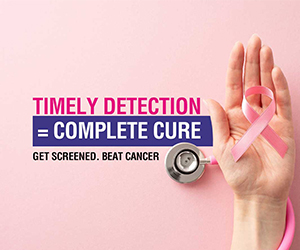Therapy and Counseling for Sexual and Emotional Health
Explore how therapy and counseling can support sexual and emotional health. Discover treatment types, benefits, and how to find the right therapist for your needs.

Therapy and Counseling for Sexual and Emotional Health
Introduction
Sexual and emotiona
Why Therapy?
Therapy for sexual and emotional health encompasses a wide range of issues, from a
The Safe Space
One of the key benefits of therapy is having a nonjudgmental space where you can speak openly about concerns that might feel difficult to share with friends or even partners. These concerns may include low libido, p
What is Sex Therapy?
Sex therapy is a specific form of psychotherapy designed to address sexual issues. Contrary to common misconceptions, sex therapy is talk-based and does not involve any physical contact or sexual activity. Therapists trained in this field help clients identify psychological, emotional, or relational barriers to a fulfilling sex life.
Emotional Health Counseling
Emotional health counseling focuses more broadly on feelings, mood regulation, past trauma, self-worth, and interpersonal dynamics. These areas often overlap with sexual health, since unresolved emotional issues can manifest as intimacy problems or confusion around identity.
Trauma-Informed Therapy
Trauma-informed therapy is especially critical for individuals who have experienced sexual abuse, assault, neglect, or coercion. Such therapy acknowledges the impact of trauma on both the body and mind, offering compassionate strategies to rebuild trust, safety, and body awareness.
LGBTQ+ Affirmative Therapy
LGBTQ+ affirmative therapy is another essential approach for those who face unique emotional and sexual health challenges related to discrimination, internalized stigma, or identity exploration. These therapists affirm the client’s orientation and gender identity while addressing specific mental health concerns.
Couples Therapy
Couples therapy also plays a powerful role in improving both sexual and emotional well-being within relationships. It helps partners identify communication breakdowns, unmet needs, sexual dissatisfaction, or past hurts that may be affecting their emotional and physical intimacy.
Therapy Modalities
Therapists may use various modalities depending on their training and the client’s needs. Cognitive Behavioral Therapy (CBT) helps address negative thought patterns and behaviors. Somatic therapies help reconnect with the body and nervous system. Internal Family Systems (IFS) therapy works with different parts of the psyche that may be in conflict.
Mindfulness and Sexual Health
Mindfulness-based therapy is particularly helpful for managing anxiety and increasing present-moment awareness during intimacy. Many people with sexual dysfunctions like vaginismus, erectile difficulties, or delayed arousal find relief through this body-mind integration.
Not Only For Crisis
Therapy is not only for those in crisis. Even individuals with no diagnosed disorders can benefit from seeing a counselor to explore identity, gain emotional intelligence, or improve their relationship with themselves and others.
Finding the Right Therapist
Finding the right therapist is key. Clients should seek professionals who are licensed, experienced in sexual or emotional health issues, and aligned with their values and identity. Websites, directories, and personal referrals can help identify options, and many therapists offer free consultations.
Teletherapy Options
Teletherapy has made mental health support more accessible than ever. Especially for those in rural areas, LGBTQ+ clients, or individuals with mobility limitations, online sessions can be a safe and practical way to begin.
Cost and Accessibility
Cost is often a barrier, but many therapists offer sliding-scale fees, and some nonprofits or university clinics provide affordable services. Investing in therapy is an investment in long-term wellness, confidence, and connection.
Healing from Sexual Trauma
For individuals healing from sexual trauma, therapy offers a place to safely process painful memories, unlearn shame, and relearn boundaries, pleasure, and consent. The therapist becomes a guide—not a fixer—empowering the survivor to reclaim agency and identity.
Addressing Libido and Relationship Issues
Sex therapy can also address mismatched libidos in couples, helping partners understand each other’s needs and find compromise without pressure or blame. When sexual expectations go unspoken, resentment often builds; therapy encourages honest, structured dialogue.
Chronic Illness and Disability
People with chronic illnesses or disabilities may also struggle with changes in their sexual identity or function. Therapists trained in inclusive care can help clients navigate these experiences with compassion and dignity.
Emotional Neglect and Self-Worth
Emotional neglect in childhood—often invisible—can result in adults who feel unworthy of love, disconnected from desire, or afraid of vulnerability. Therapy helps uncover these early wounds and gently rebuild a healthier self-image.
Exploring Alternative Sexualities
Therapy can also support those exploring kink, polyamory, or other forms of consensual non-monogamy. A kink-aware therapist provides understanding without pathologizing, encouraging open exploration of desires in safe, consensual ways.
Cultural and Religious Considerations
Cultural and religious beliefs may add additional layers of conflict or guilt around sex and identity. A sensitive therapist will respect the client’s background while helping them make sense of internal tensions and personal truth.
Group Therapy and Community
Group therapy can also be a powerful resource. Being part of a healing community can reduce isolation and provide validation from others going through similar challenges.
Complementary Practices
Journaling, psychoeducation, and self-reflection exercises often accompany therapy. These tools help reinforce insights, track progress, and deepen awareness between sessions.
Therapy is a Journey
Therapy is not a quick fix, but a process. It takes time, trust, and effort—but the rewards are lasting. A healthier emotional life leads to more authentic relationships, deeper pleasure, and increased self-worth.
Rediscovering Pleasure and Authenticity
For some, therapy is a journey of rediscovering their right to feel good—in their mind, in their body, and in their relationships. It is about moving from survival to thriving, from shame to self-love, and from silence to expression.
Who Can Benefit?
Whether you’re single or partnered, exploring your identity or recovering from harm, therapy can offer you a roadmap. You don’t need to know all the answers to begin. All that’s required is a willingness to take the first step.
Conclusion
In conclusion, therapy and counseling are powerful allies in the journey toward sexual and emotional health. By addressing internal and relational struggles with the guidance of trained professionals, individuals can achieve clarity, confidence, healing, and deeper connection. Therapy is not only for mental illness—it’s for anyone who wants to live a fuller, more aligned life.











